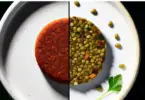16th June 2012
Guest Writer for Wake Up World
Apparently, …. yes. Eating right is harder than doing taxes.
A recent survey published by the International Food Information Council Foundation found that more than half of 1,000 Americans thought it was easier to do their taxes than trying to figure out what they should or shouldn’t eat to be healthy.
Eating shouldn’t be this hard.
[pro_ad_display_adzone id=”110028″]
I’m a practitioner who advocates some foods that are, for our culture, hard to swallow. Grass fed meat with lots of fat, bone broth based soups that cook for days, and of course my ‘No Vegetable Left Behind’ philosophy – no vegetable left without pastured butter – these are recommendations that come with a stigma. I can understand that with some practitioners pushing butter, and some pushing canola oil, the general public is living in confusion.
So, how do we decide what to eat?
I studied anthropology long before I studied nutrition. The cultures I studied as an anthro major ate foods that I considered wild and definitely unsavory. Organ meats, fermented fish, soaked acorns, eyeballs, gathered roots and sour little berries – to me it read like an Indiana Jones movie.
But, I began to notice some interesting health patterns that spanned all the peoples I was studying. While I was having severe digestive issues and high anxiety on my very strict vegan diet, the folks that were presented in my classes (and subsequently met that were eating a traditional diet) were not suffering from any reported health problems. They surely had an abundance of daily difficulty in some areas of their lives, but not in their bodies. No cavities, no heart disease, no stroke. No depression, no obesity, no autism…
This was my first clue that my diet, at least, was not working for me. I soon went on to study the biochemistry of why a vegan diet doesn’t keep us healthy and nourished, as well as the simple fact that not one culture studied so far has eaten a strict vegan diet, or raw food diet, for that matter. Different cultures ate differently – but they all shared common trends such as high vitamin and mineral animal foods, cultured vegetables or fermented grains, and and an unwavering reliance on pastured (grass fed) dairy. Some Swiss cultures went so far as to worship the first spring butter from grass fed cows.
The answer to the million dollar question? What do we eat?
We eat the foods that our ancestors ate – the foods that are nutrient dense, whole, and highly nourishing. We follow the trends that for thousands of years have kept women and babies healthy during birth, have allowed the elderly to maintain their vibrance, and have protected us from the ailments that occur when the ‘foods of commerce’ are allowed onto our plates. If it grows in your garden, chances are you should eat it. If it is an animal that has been carefully nurtured and allowed to eat grasses, eat it and be thankful for its meat and milk.
And if you bought it from a standard grocery store shelf, under florescent lights, tight wrapped in plastic? Deciding if it’s food, or not, is harder than doing your taxes.
About the Author
 I am a certified Nutritional Therapy Practitioner through the Nutritional Therapy Association, located in Olympia, Washington. For over a decade I have explored varied diets and healing modalities, ranging from raw veganism to the Primal Diet. My interest in diet stemmed from a strong desire to heal life long health problems without continued reliance on prescription drugs.
I am a certified Nutritional Therapy Practitioner through the Nutritional Therapy Association, located in Olympia, Washington. For over a decade I have explored varied diets and healing modalities, ranging from raw veganism to the Primal Diet. My interest in diet stemmed from a strong desire to heal life long health problems without continued reliance on prescription drugs.
In 2006 I graduated magne cum laude from Murray State University with a bachelor of arts degree, emphasis in medical anthropology and professional writing. My time studying varied culture’s practices sparked my interest in continuing to investigate the link between chronic illness/ degenerative disease and dietary habits.
The teachings of the Weston A. Price Foundation and the Nutritional Therapy Association, paired with my background in medical anthropology, have led me to believe that a properly prepared, whole food, nutrient dense diet is one of the primary keys to optimal health. I can be contacted further via my site nourishsystem.com
[pro_ad_display_adzone id=”110027″]







